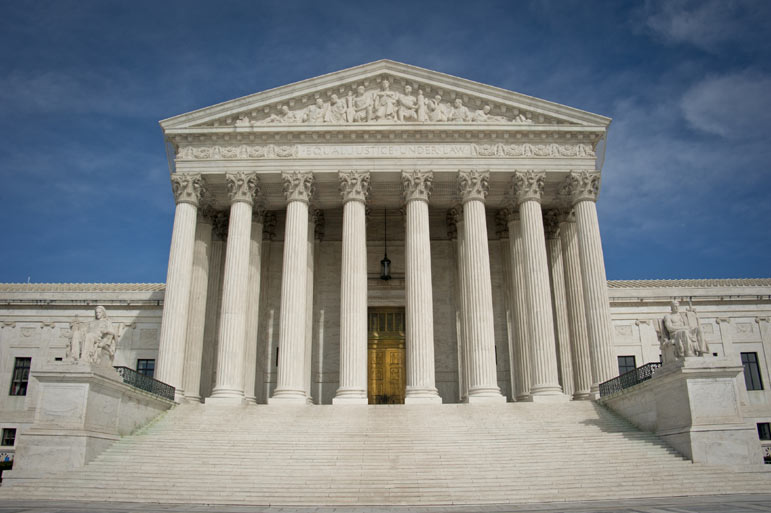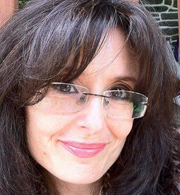
Over the past weeks, Catholic Christians were murdered in the pews of a French church, decapitated by an Isis sympathizer. Days later, Jews were assaulted in the streets of Vienna by another Islamic fundamentalist, with numerous fatalities. And here at home in the United States, Supreme Court Justice Amy Coney Barrett has been questioned about the legitimacy of her Catholic faith, several years after the attorney general of Pennsylvania sued Catholic nuns for refusing to comply with a secular mandate to provide free birth control for employees.
With that background and in that light, the case before the Supremes this Wednesday is of profound importance.
Several years ago, the city of Philadelphia ended its contractual relationship with Catholic Social Services and its foster care program on the grounds that - stay tuned for the surprise - the Catholic-based program did not place foster children with same-sex couples. In fact, no same-sex couple had ever sought the services of CSS. They were apparently smarter than the advocates for the city, who were shocked that a Catholic organization would be opposed to placing children with two mothers or two fathers, in violation of the church’s precepts.
As it did when faced with adults who used the alleged plight of children to advance their own socio-political agendas, city representatives chose to terminate their contract with CSS, thereby leaving needy children without the loving, necessary care they had been receiving from the organization for many years.
No one had previously complained about the policy, and it was only when a newspaper story highlighted the phantom grievance of phantom victims that the city of Philadelphia put on its rainbow-colored superhero cape and decided to defend the rights of gay and lesbian prospective foster parents who had no idea they were being discriminated against in the first place.
When the newspaper wrote its story about a couple who had gone to another foster care agency and had been refused service, Catholic Social Services was also mentioned as another organization that did not place children into same-sex foster care units.
Because it is absolutely necessary to pre-empt bigotry wherever we think it might crop up, even if that harms orphaned children, the city ended its contract with CSS. CSS then sued, choosing as its name plaintiffs two deeply devout, Catholic African American women named Sharonell Fulton and Tony Simms-Busch, alleging religious discrimination on the part of the city under the Free Exercise Clause of the First Amendment. They lost at both the district and circuit court levels.
And then, in February, a wonderful thing happened: The Supreme Court granted certiorari to hear the case, and it was argued before a full court (including newly-installed justice Barrett) on Nov. 4.
At that hearing, the plaintiffs established that the only reason the city had ended its contract with CSS was because the organization remained true to its religious principles. There was evidence that the only way that an organization could operate a foster care service in Philadelphia was to contract with the city, which had a monopoly.
Therefore, the city was forcing CSS to either concede in its demands to accept same-sex couples as foster parents or be barred from providing desperately needed services to vulnerable children.
The fact that CSS received city funding in order to operate its program (funds which did not cover the totality of its services) was actually irrelevant, since even if CSS had received no monetary subsidy from Philadelphia it would still be forced to abide by the city rules on alleged discriminatory acts because of the monopoly it held.
At the hearing, the attorney for the plaintiffs Lori Windham from the Becket Fund noted that “religious organizations should be free to serve the public, regardless of their beliefs. The public square is big enough to accommodate everyone who wishes to do good – and that should be especially true when it comes to taking care of children in need.”
It seems that the plaintiffs might have swayed several key justices. The one who made the most cogent and compelling observation was Justice Alito, who stated that, “If we are honest about what’s really going on here, it’s not about ensuring that same-sex couples in Philadelphia have the opportunity to be foster parents. It’s the fact the city can’t stand the message that Catholic Social Services and the archdiocese are sending by continuing to adhere to the old-fashion view about marriage.”
Same-sex couples have the right to be foster parents, if they choose. They do not, however, have the right to impose their will on an institution that has for centuries ministered to the least of these, and made sure that orphaned children would have a home, nourishment and care.
Adults do not have the right to use children as proxies in their battle for equality.
Let us hope that Philadelphia, the city in which the principle of religious freedom was made manifest in our laws and character, will remember its noble roots and stop this needless discrimination against good people of faith.
(COMMENT, BELOW)
Christine M. Flowers is a lawyer and columnist.


 Contact The Editor
Contact The Editor
 Articles By This Author
Articles By This Author